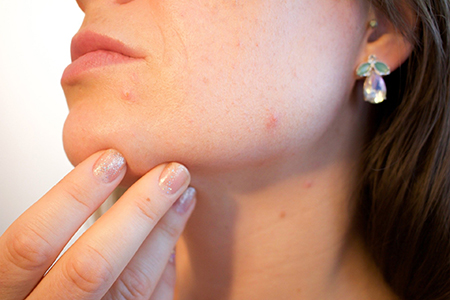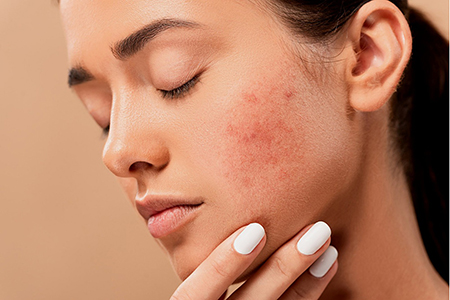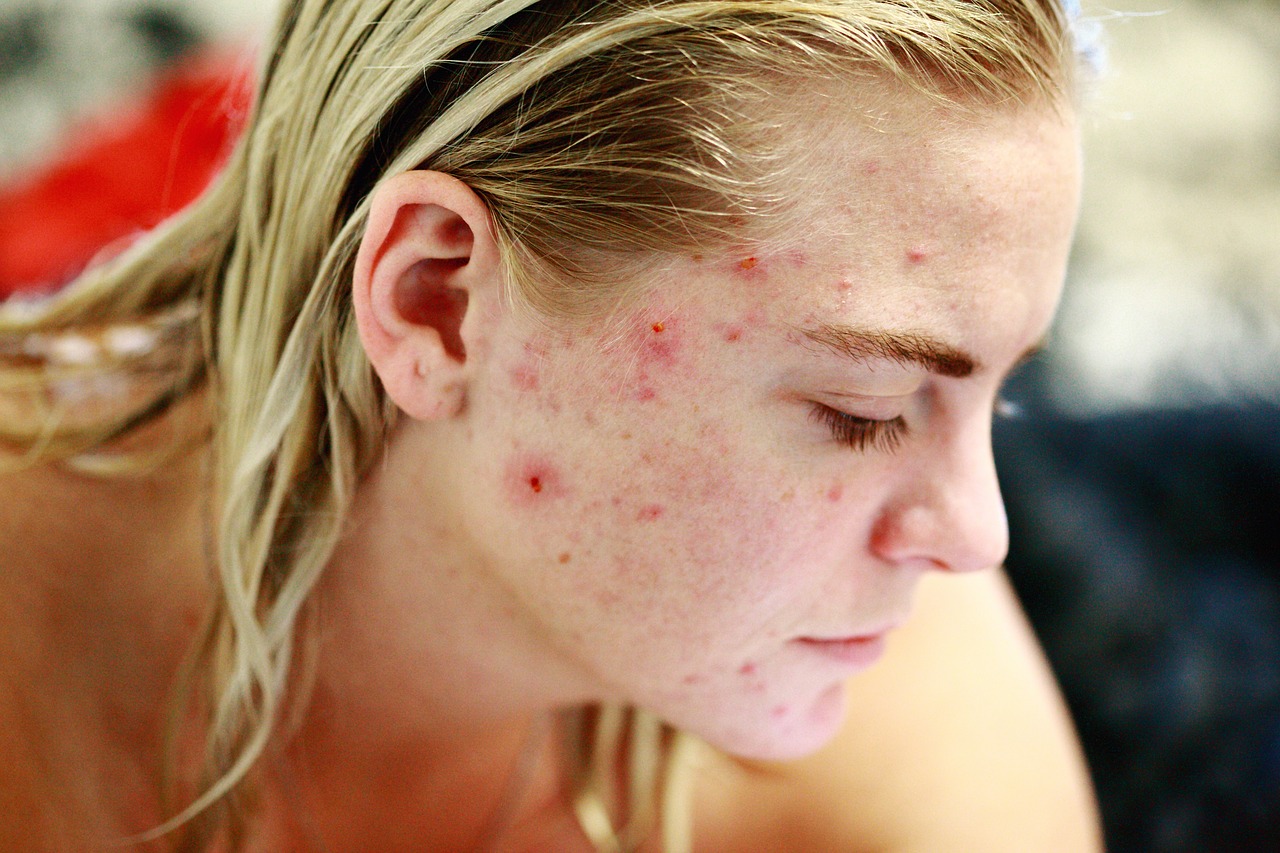Ugh, yes, acne. We all hate it. We always seem to have breakouts at the worst times, and the breakouts truly never fail us. Yay. Did you know that not all breakouts are the same? In fact, some types of acne aren’t even actually considered a breakout! We just usually refer to all types as the same, and that is about to change.
We all know that acne is a result of clogged pores for various reasons, whether that be bacteria, hormones, excess oil, or dead skin cells. However, they don’t produce the same type of acne. We can break them down into two main groups: noninflammatory and inflammatory. Some other subtypes include blackheads, whiteheads, cysts, pustules, and nodules. Let’s go over the two main types of acne and what to know about them.
Starting with noninflammatory, the two subtypes are blackheads and whiteheads. Blackheads are also known as open comedones, which as you might guess, means that the pore stays open to the top while the rest of the pore is clogged. This combined with the sebum and dead skin cells results in the black color. On the other hand, whiteheads are closed comedones that are closed at the top, as you might have figured out. They are created by the clogging from sebum and dead skin cells like blackheads, but they are more like small bumps protruding from the skin since the top is closed.
Next, we have inflammatory acne that is primarily red, swollen, and hurt like heck as we all have experienced! This type includes papules, pustules, nodules, and cysts. So, the basics are the same: they are caused by sebum and dead skin cells, but they also can be a result of bacteria infiltrating the pores too. This acne is painful and usually much harder to get rid of in comparison to noninflammatory acne. Papules arise when the walls around your pores break down from inflammation. These results in pink and tender to the touch acne spots. Pustules can also happen this way, but they are filled with pus and are red with white or yellow heads on top. Nodules are usually a result of untreated acne that just continues to grow larger and get more infected. Lastly, we have the cyst. These are a combination of bacteria, sebum, and dead skin cells too, but they are much deeper in the skin and much further beneath the surface. These can be red or white, and they are the largest form of acne. They are painful and usually will scar the skin and need medical treatment.

Well, that is the rundown of the types of acne my friends. I hope this clears up some confusion as to what is going on with face breakouts and other problematic acne spots that always happen at the worst times! The best way to prevent any of these from happening is to keep that face clean and keep stress levels low. Just remember, acne always happens, even to the best of us, so don’t get too upset with yourself if you’re doing all you can.


0 Comments